
Recently, Jesus told the disciples that He was going to Jerusalem to die and then be resurrected. But the disciples did not completely understand what He was talking about because God the Father hid the meaning from them. If they had completely understood the terrible events that were going to occur, they might have tried to prevent Jesus from going to the city. The climax of His ministry was only about one or two weeks away. Jericho was behind them now, and Jerusalem just ahead. Bartimaeus and Zaccheus had just been saved. Jesus had announced that He came to seek and to save the lost, and those two men were now saved. These two men believed in Him and their sins were forgiven, just like we use a credit card today. Their sins were forgiven on credit due to their faith in Jesus. When Jesus is crucified in the days ahead, the debt that these men owed due to their sinful condition would be paid. The two men were an important climax to His ministry before the horrible suffering that awaited Him. Jericho is disappearing behind them, and now Jesus is moving closer to Jerusalem. Our study is from Luke 19:11-27.
Reason for the Parable (v 11)
Luke 19:11 tells us that Jesus had left the city of Jericho and was now moving toward Jerusalem.
While they were listening to these things, Jesus went on to tell a parable, because He was near Jerusalem, and they supposed that the kingdom of God was going to appear immediately. Luke 19:11 (NASB)
The trip to Jerusalem would have been difficult for travelers since it was at a higher elevation. One individual has said that it took him about eight hours to walk the distance of 15 miles (24 km) between the two cities. That is not surprising since the climb from Jericho to Jerusalem is 3,400 feet (1060 m). Most likely Jesus traveled up the Ascent of Adummim.[1] The climb is steep along the old Roman roads.
When we are told, “While they were listening to these things,” it refers us back to verse 10, where Jesus said that He had come to seek and save the lost. The verse implies that as they walked, Jesus was telling them a parable.
We are told that the disciples thought the kingdom was going to appear because they were moving toward Jerusalem. It is obvious they did not understand Jesus’ comments that He was going to Jerusalem to die in fulfillment of the prophecies (Matthew 20:17-19; Mark 10:32-34, and Luke 18:31-34).
They thought the kingdom was going to appear immediately. As we have discovered before, the disciples were expecting the kingdom to appear. They had argued about who would be the greatest in the kingdom on several occasions. Jesus had talked to them about His death and the coming kingdom over which He would reign. Jesus’ death was not the end of His ministry. Instead, it was necessary to save the lost and bring them into the future kingdom. Some people also at the feeding of the five thousand men thought Jesus was going to bring the kingdom even then!
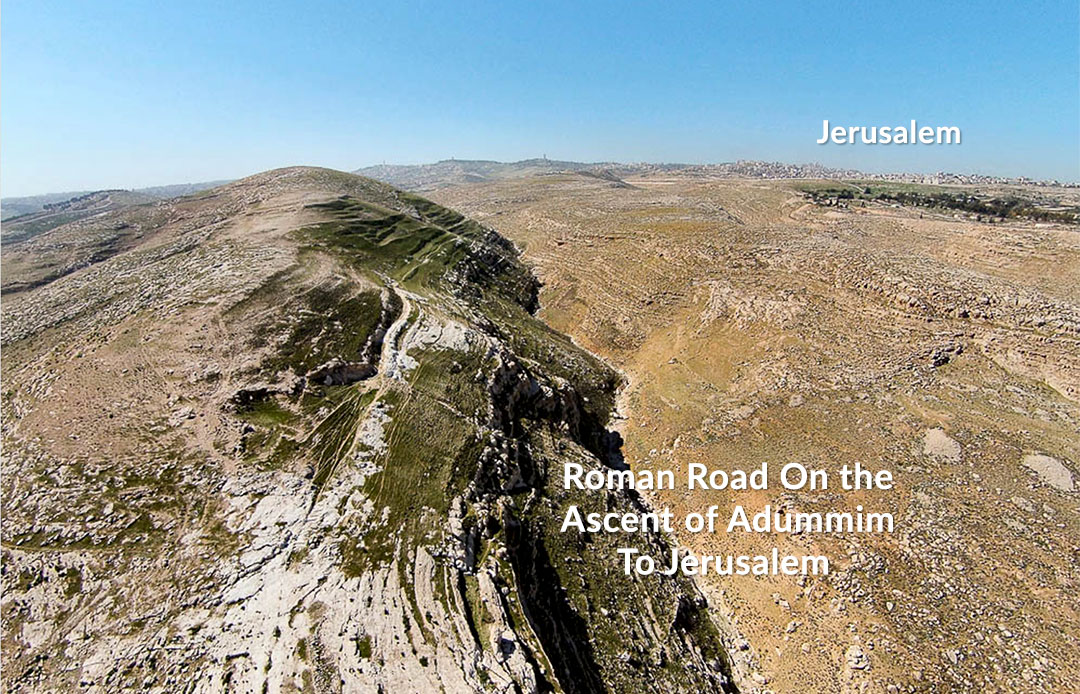
King’s Servants Instructed (v 12-13)
So, Jesus gave them a parable about the future king and kingdom. Verse 12 tells us that Jesus said,
So He said, “A nobleman went to a distant country to receive a kingdom for himself, and then return. And he called ten of his slaves, and gave them ten minas and said to them, ‘Do business with this until I come back.’” Luke 19:12-13 (NASB)
This parable is about a nobleman who was going to leave for a distant country in order to receive a kingdom.[2]
Verse 11 has revealed already that the parable has spiritual meaning. It is about the kingdom of God. Thus, the nobleman represents Christ, and the distant country is heaven. When Christ ascended back to heaven, He went to that distant country. The word “distant” implies that He would be gone for a long time. Jesus implied that the time between His ascension and second coming would be a long time. That is, the kingdom was not going to occur immediately. It was not going to happen even in the near future. Earlier in Luke 17:22, Jesus had told them that they would not see the kingdom in their lifetime. So, the parable was designed to help them and us understand the kingdom is distant.
Verse 12 gives us a summary of the nobleman’s travel plans. We are told that he went to a distant country to receive a kingdom. Verses 13 tells us what happened before the nobleman left for the distant country. This will become obvious in verses 14-15. Verse 13 says he called ten of his slaves. The ten slaves represent all true believers. Every believer is a slave for Christ. Some believers are not very good slaves, and others are pleasing to the Lord. Throughout the New Testament, the apostles called themselves slaves of Christ (Romans 1:1; Philippians 1:1; Titus 1:1; James 1:1; 2 Peter 1:1; Jude 1). The Greek word for “slaves” is doulos. It is used here to symbolize believers.
We are told that the nobleman gave each slave one mina. That equaled about three months of wages. That was a great amount of money. Then the nobleman told his slaves, “Do business with this until I come back.” That is, they were to invest the nobleman’s money. That is the preparation he made before leaving for the distant country. Then he left.
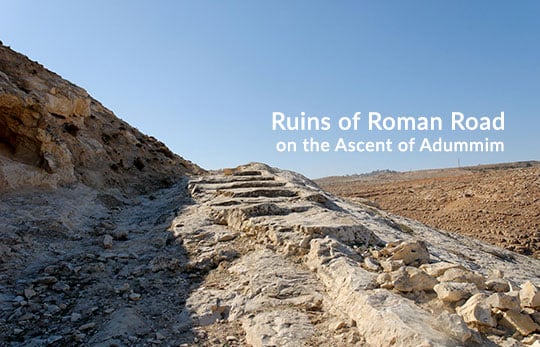
King’s Enemies Reject Him (v 14)
Verse 14 describes what happened after the nobleman left.
But his citizens hated him and sent a delegation after him, saying, “We do not want this man to reign over us.” Luke 19:14 (NASB)
Some think that Jesus borrowed from the historical event of Archelaus. Flavius Josephus tells that Archelaus, the son of Herod the Great went to Rome to receive permission to reign as king in his place. But his request was opposed by a delegation of citizens from Judaea.[3] William Barclay provides a great summary of the historical background in his commentary on Luke.[4] If Jesus did borrow from that historical event, then the parable looked forward to the Jewish leaders rejection of His rule as king.
The gospels tell us that the religious leaders had been rejecting Christ throughout His ministry. They were angry that Jesus was honored as a king at the Triumphal Entry. The book of John says that King Herod placed a sign on Jesus’ cross that read, “THIS IS JESUS THE KING OF THE JEWS” (Matthew 27:37). The chief priests rejected the sign.
So the chief priests of the Jews were saying to Pilate, “Do not write, ‘The King of the Jews’; but that He said, ‘I am King of the Jews.’” John 19:21 (NASB)
They did not want Jesus to be their king. But that was not true of Jesus’ disciples. After He was crucified, the religious leaders continued rejecting Him after He ascended to heaven. Twice they tried to stop the apostles from preaching about Jesus (Acts 4:19-22; 5:27-32). The book of Acts describes a continuing attempt to stamp out any preaching about Jesus. That is, the Jewish leader continued rejecting Christ and many still do to this day.
Now we understand why Christ said the nobleman left to receive a kingdom, but the citizens did not want him to be king. That would remind them of the historical events related to Archelaus, and prepare them for what would happen to Him when they arrived in Jerusalem and after He ascended to heaven.
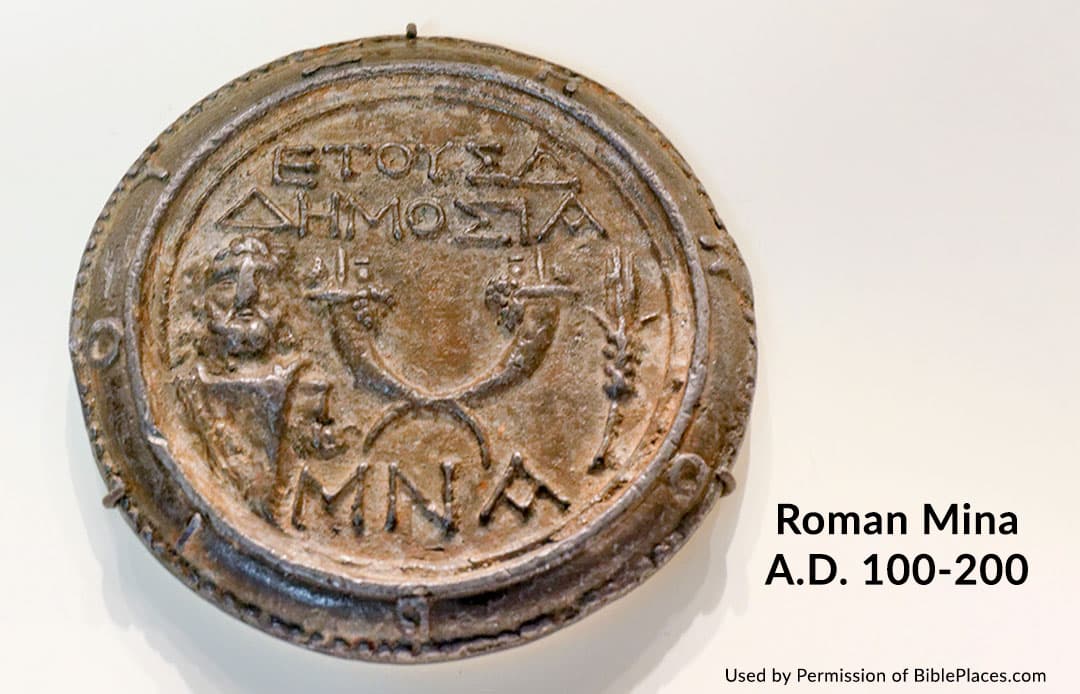
King’s Faithful Servants Evaluated (v 15-19)
In verse 15, the nobleman returns after receiving the kingdom. We are told,
When he returned, after receiving the kingdom, he ordered that these slaves, to whom he had given the money, be called to him so that he might know what business they had done. Luke 19:15 (NASB)
Matthew 25:34 teaches us that God the Father had prepared the millennial kingdom from the foundation of the world. Matthew 6:10 says the kingdom belongs to the Father. In Philippians 2:9-11 we discover that the Father plans to give Christ the kingdom. 1 Corinthians 15:23-24 reveals that Christ will return the millennial kingdom to the Father when the end of this age arrives. That is a quick peek into the future. Today, we are waiting for the rapture which will be followed by the tribulation, His second coming, and then His kingdom. We are waiting for the king to return.
We are also told that the nobleman called the slaves so that he might know what business they had done. What had they done with his minas while he was away? The money was not their money. Since the ten minas was to be used to do business for the nobleman, we should understand the money has a spiritual meaning. God wants every believer to do good works (Ephesians 2:10) while we wait for His return, the second coming. He has given orders to all believers.
For example, in Matthew 28:19-20 He commanded believers to make disciples. That includes sharing the gospel, training disciples, and becoming more like Christ. Those are His instructions. We are to do this while we wait for His kingdom. In 1 Corinthians 4:5, believers are told that we will be rewarded for the motives of their hearts. That is, why did we serve Christ? Did we do it for Him?
What had they done for Christ while He was away? The nobleman’s question to the ten slaves may be asked of us some day. What did you do for Christ? Did you just take vacations and enjoy yourself, or were you absorbed in doing the things that Christ asks of you? That is, what investment did you make for Jesus? We are about to learn how these ten slaves of the nobleman invested his money.
In verses 16-19, the nobleman evaluates how these slaves invested his money. Here is what happened. Verses 16-17 tell us the first slave was evaluated,
The first appeared, saying, “Master, your mina has made ten minas more.” And he said to him, “Well done, good slave, because you have been faithful in a very little thing, you are to be in authority over ten cities.” Luke 19:16-17 (NASB)
The Greek word for “made” is prosergqzomai. It has the meaning of “to gain,” or “to earn.” That is, because this slave had been faithful in this very small task, the nobleman would give him responsibility over ten cities.
Then another slave presented himself to the nobleman. Verses 18-19 tell us this slave did not gain ten minas, but five minas.
The second came, saying, “Your mina, master, has made five minas.” And he said to him also, “And you are to be over five cities.” Luke 19:18-19 (NASB)
Consequently, the nobleman made this slave the manager over five cities.
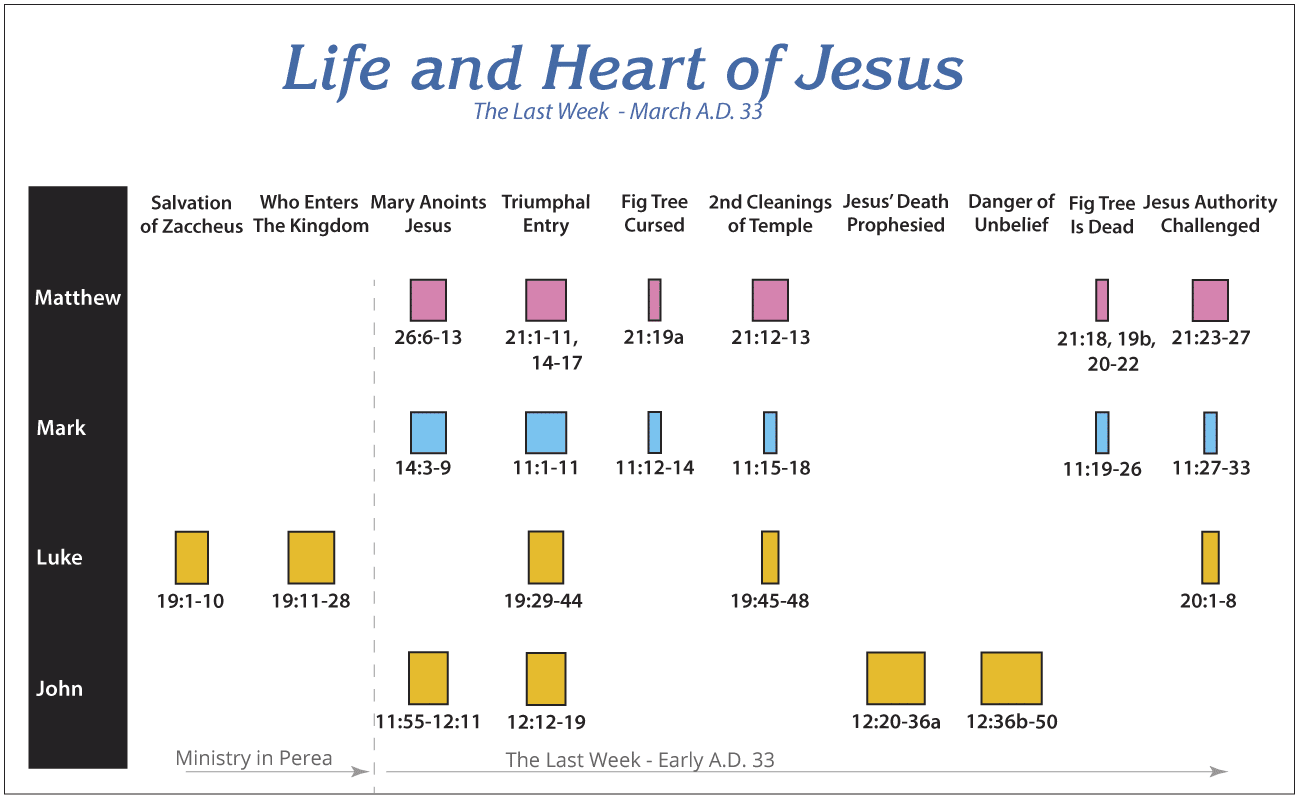
King’s Worthless Servant Evaluated (v 20-26)
Verses 20-23 describes another slave, a third one, who did not invest his mina. Instead he put his mina in a handkerchief and left it somewhere.
Another came, saying, “Master, here is your mina, which I kept put away in a handkerchief; for I was afraid of you, because you are an exacting man; you take up what you did not lay down and reap what you did not sow.” Luke 19:20-21 (NASB)
This slave offers the excuse that he was afraid. Apparently, he was afraid of losing the mina, and consequently, making the nobleman angry. Verses 22-23 describe what happened to the slave.
He said to him, “By your own words I will judge you, you worthless slave. Did you know that I am an exacting man, taking up what I did not lay down and reaping what I did not sow? Then why did you not put my money in the bank, and having come, I would have collected it with interest?” Luke 19:22-23 (NASB)
The slave did not escape condemnation. Notice the nobleman called the slave “worthless.” It is also important to notice the nobleman used this slave’s own words as the basis for the statement. In Matthew 12:35-37, Jesus told us that at the judgment our words will be used to condemn us. Jesus could only be referring to unbelievers since Romans 8:1 says there is no condemnation for those who are in Christ.
The slave did not accomplish anything for the nobleman. He did not try hard enough. He did not ask others or explore various investment options. Maybe he is like some people today who want someone to tell them how to serve Christ. They are waiting for God to give them directions. They claim to be serious about serving God, but they never do anything for God. The truth is they are worthless. They are doing nothing for Christ.
So, what did the nobleman do with this worthless slave? Verses 24-26 give us the terrible news. Verses 24-26 say,
Then he said to the bystanders, “Take the mina away from him and give it to the one who has the ten minas.” And they said to him, “Master, he has ten minas already.” I tell you that to everyone who has, more shall be given, but from the one who does not have, even what he does have shall be taken away. Luke 19:24-26 (NASB)
So, the worthless slave was judged. His mina was taken away and given to the first slave. To the bystanders this did not seem fair. They are like some of us today. We think the responsibilities must be spread around. The idea is everyone must be treated equally. But the truth is the slave with the ten minas had proven that he was anything but worthless.
In verse 26, we are given a biblical principle when we discover the final verdict for the worthless slave,
I tell you that to everyone who has, more shall be given, but from the one who does not have, even what he does have shall be taken away. Luke 19:26 (NASB)
The nobleman wanted to accomplish something. So, he gave the mina to the first slave. The bystanders were not wise. They are like some in our churches today, who are more concerned about who seems to be favored, rather than accomplishing great tasks for the kingdom of God. Jesus gave us a biblical principle in this verse. God gives more to faithful believers because they will accomplish much for His kingdom.
In this parable the faithful slaves are true believers. Just like the parable of the sower (Matthew 13:18-23), true believers produce fruit. James 2:25-26 teaches us that faith always produces fruit. It produces more minas for the kingdom.
But the false believers do not produce fruit. In this parable the worthless slave is the nonbeliever. He or she sits in the church and accomplishes little or nothing for the kingdom of God. They have excuses. Maybe the excuse will be that God never revealed His will to them, so they did not know what to do. Maybe Jesus was implying that at the judgment some will blame God, but the truth is it will just be an excuse.
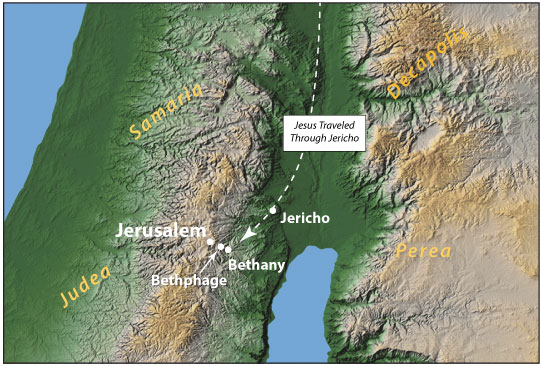
King’s Enemies Killed (v 27)
Verse 27 gives us the conclusion of the parable. It reveals what will happen at the judgment of all unbelievers. The enemies in the parable, who did not want the nobleman to reign over them, are the unbelievers in the parable.
But these enemies of mine, who did not want me to reign over them, bring them here and slay them in my presence. Luke 19:27 (NASB)
These individuals will be thrown into hell or the lake of fire. There is a horrible cost for rejecting the divine and sovereign king who will rule for eternity. This is a warning to every unbeliever.
Conclusion
Who are the individuals in the parable? There are three groups of people. The first group was the faithful slaves. They are believers. They always produce fruit for Christ. Some will produce little and some will produce much. But they always produce fruit (James 2:25-26). Jesus gave us this principle in John 15:2,
Every branch in Me that does not bear fruit, He takes away; and every branch that bears fruit, He prunes it so that it may bear more fruit. John 15:2 (NASB)
The fruit producing branch is a true believer. God prunes it, or puts it through difficult times, to cause it to produce more. The fruitless branch is the worthless slave. It will be cut off and thrown away.
Then Jesus adds this in John 15:4-5,
Abide in Me, and I in you. As the branch cannot bear fruit of itself unless it abides in the vine, so neither can you unless you abide in Me. I am the vine, you are the branches; he who abides in Me and I in him, he bears much fruit, for apart from Me you can do nothing. If anyone does not abide in Me, he is thrown away as a branch and dries up; and they gather them, and cast them into the fire and they are burned. John 15:4-6 (NASB)
The fruitless branch in John 15:2-6 is an unbeliever who just claims to be a Christian, This person attends church and may look like a real Christian. The worthless slave includes the unbeliever and the fake believer. Both of them will be cast into the lake of fire.
The enemies in the parable represent the Jewish religious leaders, all who have rejected, and all who will reject Christ in the future. They are unbelievers who will be tossed into the lake of fire (Revelation 20:11-14)!
So, the faithful slaves were faithful because they were truly Christians. The worthless slaves and enemies of God were never real and they will have nothing to show God on the day of judgment as proof that they were real Christians.
So, in which of the three groups are you? Jesus’ point in the parable is that His followers are faithful and they produce fruit for the kingdom. So, if you claim to be a believer does your show any evidence that you are? What are doing for Christ?
References:
1. Todd Bolen. “Jericho to Jerusalem.” BiblePlaces. com. November 30, 2006. (www.bibleplaces.com/blog/2006/11/jericho-to-jerusalem/)
2. The parable of the minas in Luke 19:11-27 is different than the parable of the talents in Matthew 25:14-30. There are some obvious differences. First, the parable of the ten minas was given after Jesus left Jericho and before the triumphal entry into Jerusalem. The parable of the talents was given in Jerusalem, and after the triumphal entry. The parable of the minas is about a nobleman and ten slaves. The slaves are each given one mina. The parable of the talents is about a business man who had three slaves and gave them different number of talents. The rewards in both parables are different. The messages are also different.
3. Flavius Josephus. Antiquities of the Jews. XVII, ix, 3-7, xi, 1-4; and Wars of the Jews. II, ii, 3.
4. William Barclay. The Gospel of Luke. Westminster John Knox Press. 2001. p. 281.